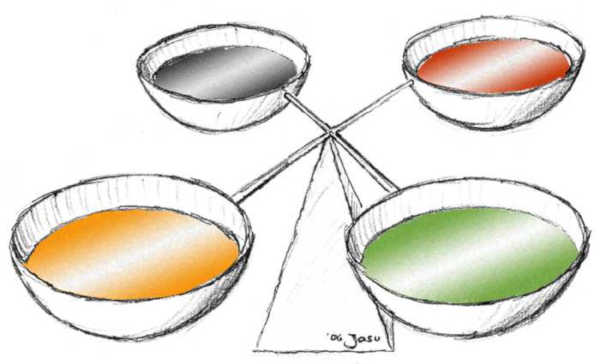FWP:
SETS == KAHAN
Some general points about this whole gazal have been made in {85,1}.
The strengths/powers have lost their strength/power. Now there's nothing but weakness. It's not that strength used to be unlimited. But there used to be a sense of balance, of harmony, of the powers and forces and humors of the body working smoothly together. (The four humors, and their balance, are of course defining elements of the Greco-Islamic medical theory with which Ghalib was very familiar.) Now where is all this balance and harmony? Now it's all gone-- gone where?
All this nostalgic awareness of the past is conveyed to us through the verb ho gaye , 'became', and above all through the little adjectival vuh , 'that'. There's a kind of pathos and lament here, but also a kind of mystery. After all, where indeed do the powers of youth go, when they're gone? But then, of course, where are the snows of yesteryear? And where does the music go, when the orchestra stops playing?
Just to make things more piquant, this whole ghazal was composed when Ghalib
was in his twenties. So this verse is not only non-autobiographical, in the normal classical-ghazal way, but actually anti-autobiographical. For more on the problems of 'natural poetry' readings, see {66,1}.

Ghalib:
[1866?, to Zaki:] My kind friend, in the Persian language the writing of letters had already been renounced [matruuk]. From the onslaughts of old age and weakness, the strength for laborious scrutiny and liver-utilization have not remained in me. The vital warmth is in decline, and this is the state: {85,8}. (Arshi 224)
==Urdu text: Khaliq Anjum vol. 2, p. 842
==trans.: Daud Rahbar p. 272